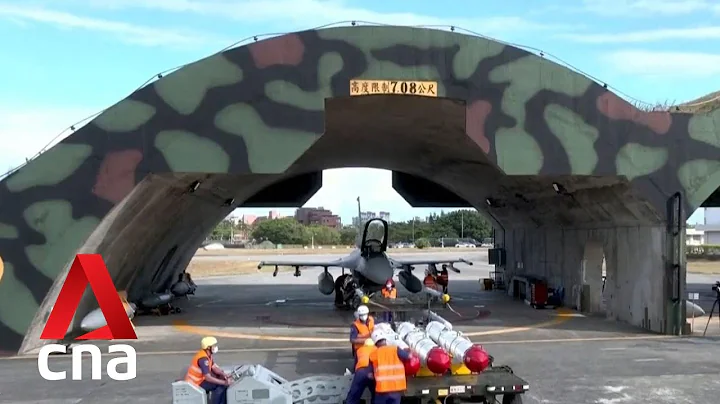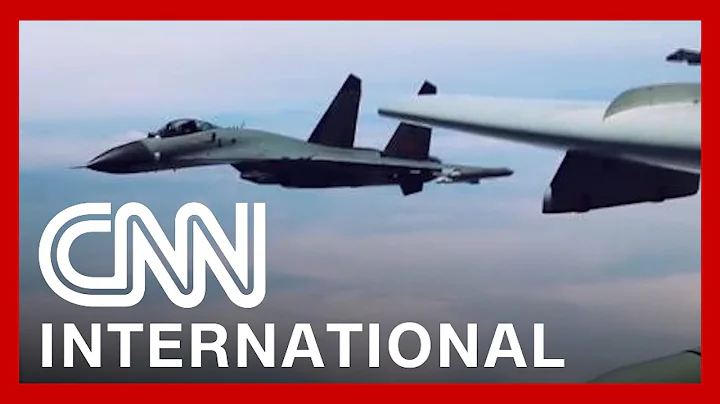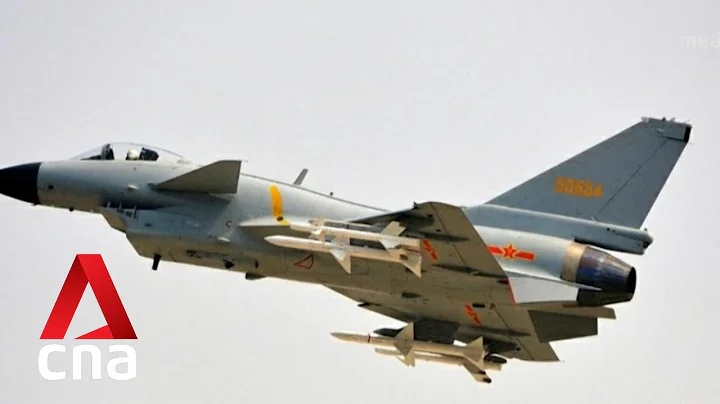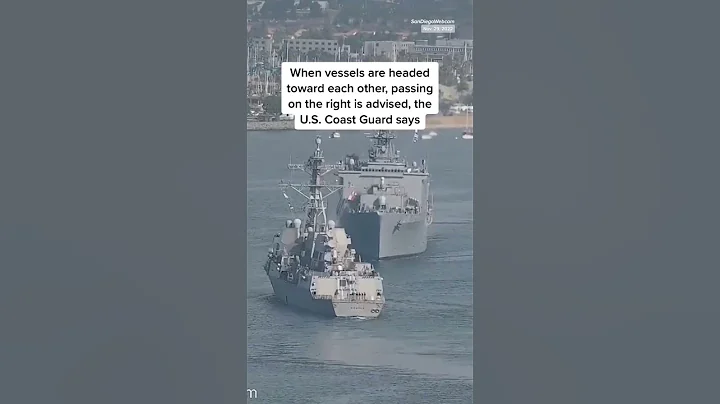On October 15, 1950, Liu Zhen, deputy commander of the 13th Corps of the Chinese People's Liberation Army, was transferred to commander of the Air Force of the Central and South Military Region. Less than a month after Liu Zhen took office, he received an emergency order from the Central Military Commission: "Go to Beijing quickly! We have important matters to discuss!"
On November 4, the Air Force sent a plane to carry Liu Zhen from Wuhan to Wuhan. Beijing. With many years of war experience, Liu Zhen was keenly aware that there must be some new task that would fall on his shoulders.
That night, Air Force Commander Liu Yalou summoned Liu Zhen urgently. As soon as they met, Liu Yalou got straight to the point: "The Central Military Commission has decided to transfer you to the position of commander of the Northeast Military Region Air Force, and let you organize the Volunteer Air Force to participate in the to resist U.S. aggression and aid Korea. At that time, you will assume the position of commander of the Volunteer Air Force."

Liu Yalou
After hearing this, Liu Zhen I was shocked. I had been reluctant to transform the army into an air force, but now I was going to lead the air force into North Korea to participate in the war! He hurriedly declined and said: "I still have some ideas for the army, but I have no experience in the air force. I have never even flown on an airplane! I think it is better for me to go back to the Central and South China Air Force to familiarize myself with air force life. After the air force officially enters the DPRK, I can go to the front line to continue learning at any time, let the experienced comrades do it first!"
Liu Yalou first told Liu Zhen about the current situation on the Korean battlefield: "In early October, Kim Il Sung sent someone to tell Chairman Mao that on the Korean battlefield, The enemy uses more than a thousand aircraft to bomb the front and rear of North Korea day and night. They are eager for direct support from the Chinese People's Liberation Army, especially the air force. We originally agreed with the Soviet Union that to resist U.S. aggression and aid Korea, we would provide the army and the Soviet Union would provide the air force. Big Brother suddenly quit, and Premier Zhou personally went to Moscow to meet with Stalin, but to no avail. "
Finally, Liu Yalou said in an unquestionable tone: "We have worked together in Sime , and I know you can fight. Good at learning new things. This job transfer was ordered by Volunteer Army Commander Peng Dehuai, reviewed by Premier Zhou, and approved by Chairman Mao."
Liu Zhen realized that he had a heavy responsibility, and he immediately stated: "Resolutely obey. No matter how difficult the order is, I will do it well!"

Liu Zhen
Liu Yalou handed Liu Zhen the list of leading cadres of the Volunteer Army. Liu Zhen said excitedly after reading it: "That's great! Air Force cadres came to help me, especially Comrade Chang Qiankun, who is an expert in aviation and an old comrade of our party who studied aviation. He came to serve as deputy commander, and I felt much more at ease. "
The next day, Liu! Zhen then set off for Shenyang. In January 1951, the leadership organization of the Volunteer Army Air Force began to be established. Since our Air Force was still in its initial stage of establishment at that time, it could only be solved by "gathering together a team", that is, mainly cadres and staff transferred from the Air Force leadership, supplemented by cadres and staff transferred from the Northeast Military Region Air Force, and composed of It is composed of some personnel transferred from other military regions.
After more than four months of intense preparations, on March 15, 1951, the Chinese People's Volunteer Army Air Force Command was established in Andong, Liaoning Province (today's Dandong ). It was named "China and North Korea People's Air Force Joint Command" at that time. . Liu Zhen serves as the commander, and Chang Qiankun serves as the deputy commander.
At that time, our military pilots had only flown on the MiG-15 for 15 to 22 hours and had no actual combat experience. The U.S. Air Force is not only large in number, but most of its pilots have flown for thousands of hours and have participated in air combat experience in World War II. Faced with such a severe situation, Liu Zhen paid great attention to the training of the troops when he first took office. During those months, he had to lead the troops during the day and asked Soviet military advisers to "start a small stove" at night.

Volunteer fighter aircraft
By the end of April 1951, all units had basically completed their training tasks as planned, and the exercise assessment and acceptance organized by the Soviet Air Force Advisory Group began. The assessment is divided into four stages: the first stage, headquarters at all levels prepare decisions for the leaders; the second stage, attack the enemy airport; the third stage, resist the enemy bomber group's attack on important targets; the fourth stage, cooperate with the ground troops to annihilate Enemies under siege.
The entire assessment lasted for 19 days, and a total of 307 aircraft were flown, all of which were China's own pilots. Under the command of Liu Zhen, these pilots took to the sky in the prescribed order, airspace, and formation, without any chaos, without missing a beat, and were perfect. Assessment completed. After the assessment, the Soviet adviser happily said to Liu Zhen: "A miracle, a miracle. You have really reached the sky in one step!"
Liu Zhen later recalled: "I was trying to catch a duck to the shelves. In fact, it was just one step in the door, one step in the door. "It's outside the door!"
On July 10, 1951, the Korean armistice negotiations began. In order to strengthen its negotiating position, the U.S. military relied on air superiority and attempted to use its air power to suffocate the transportation and supplies of the Chinese and North Korean troops in order to prevent China and North Korea. The army once again launched a decisive ground offensive. In mid-August, the U.S. Air Force launched the "Strangulation War" operation, focusing on bombing the rear transportation lines of the Volunteer Army. The Volunteer Air Force launched a counter-"Strangulation War".

Volunteer Air Force pilots
On the afternoon of September 25, our radar discovered 5 batches of 112 enemy planes attempting to bomb railways and roads in Pyongyang and other places. Liu Zhen decisively ordered 114 of our fighter planes to attack the enemy. Liu Zhen personally took command of this air battle.
The first to take off were 16 fighter jets led by Li Wenmo, deputy commander of the 12th Regiment of the 4th Division of the PLA Air Force. They fought with more than 20 US F-86 fighter jets and shot down one enemy aircraft in one fell swoop. Then Li Yongtai, captain of the first brigade of the regiment, was ordered to lead his plane to fight against the US F-84 bombers. When the enemy aircraft group appeared, Liu Zhen ordered Li Yongtai: "Immediately climb up to take up position and prepare to counterattack!"
Li Yongtai immediately turned left and climbed up to take up position, but due to the excessive turning angle, the fighter plane flew to the outside of the enemy aircraft group. The fleet of aircraft dispersed, but they were unable to target the enemy aircraft and fire. When layers upon layers of enemy planes once again surrounded Li Yongtai and others, Liu Zhen decisively ordered: "Increase the throttle and rise sharply to take position!"
At this time, although the plane piloted by Li Yongtai had been hit by more than 30 bullets, 56 were injured. However, he was not afraid of being outnumbered. After hearing the order, he quickly pulled the lever, followed by another fierce attack. After shooting down 4 enemy planes in a row, he finally broke out of the enemy planes and returned to the airport safely.

Li Yongtai
After Li Yongtai came back, Liu Zhen held his hand tightly and said: "Amazing, amazing! You piloted an injured aircraft and created the first Chinese Air Force record of shooting down the most advanced F-84 aircraft in the United States. Well done!"
Under the command of Liu Zhen, our air force shot down 26 US aircraft and damaged 8 from September 25th to 27th alone. On October 2, after seeing the battle report of the Fourth Air Division, Mao Zedong wrote the comment "The Fourth Air Division fought bravely, which is very good and very comforting", which greatly encouraged the Volunteer Air Force commanders and fighters.
At that time, in order to help the Volunteer Air Force command operations, the Soviet Union sent Major General Krolov as an air force advisor. Krolov is irritable and straightforward. He does his best at work, but sometimes he inevitably has some conflicts with Liu Zhen.
For example, in the second half of 1951, Krolov proposed that according to the Air Force combat regulations, the Volunteer Army headquarters could uniformly command operations, and the air force base could be stationed in northern North Korea. But Liu Zhen believes that North Korea's airport runways have never been repaired. They are often repaired in the morning and damaged by bombs in the afternoon. They are repaired in the evening and damaged again by bombs the next morning. If the Air Force does not have an airport, how can it take off for operations? The Air Force should still use the Andong line as its base.
The two argued over this, and finally they went to Peng Dehuai. After Peng Dehuai patiently listened to their respective opinions, he politely said to Krolov: "The general's opinion is very good, but there is still time to build a base in North Korea. There are many difficulties. Should the base be placed in China first and then enter North Korea when conditions are mature? "

Peng Dehuai
In the end, the matter was settled, but Krolov was very unhappy.
In February 1952, Liu Zhen discovered that the enemy always took off more than 30 aircraft to the south of the Yalu River to detect the weather every morning. The Volunteer Air Force had never fought an air battle in the morning some time ago, so he was determined to fight a surprise battle. In order to avoid Krolov's objection, Liu Zhen decided to command the battle without telling him.
html At 7:07 on February 10, the Fourth Air Division was ordered to take off 34 MiG-15 aircraft from Anton Airport.After the fleet took off, Liu Zhen issued an order: "'Xiong' (the code name of the 4th Wing of the US Air Force) has been dispatched, see clearly and fight!"At this time, the captain of the 3rd Brigade of the 12th Regiment Zhang Jihui discovered that there was something in the sky in the distance. A trail of white smoke. Liu Zhen decisively ordered: "Drop the auxiliary fuel tank , rise and prepare to fight!"

Zhang Jihui
After dropping the auxiliary fuel tank, Zhang Jihui and his wingman Shan Ziyu quickly climbed to an altitude of 10,000 meters to seize the altitude advantage. However, after reaching a high altitude, no enemy aircraft was found, so Zhang Jihui increased the throttle of both aircraft to catch up with the formation. When they flew over the Taichuan and Naqingting areas, Zhang Jihui spotted 8 enemy planes flying towards him on the right front. The two leading enemy planes had already inserted behind his tail, and the distance was getting closer and closer to The effective range of the cannon .
At this critical moment, Zhang Jihui piloted the aircraft and suddenly made an upward turn to the right, then immediately turned back quickly to the left, catching the enemy aircraft. Seeing that the situation was not good, the enemy plane hurriedly ascended vertically, descended rapidly, and flew in an "S" shape in an attempt to get away from our plane. Zhang Jihui cleverly used the shortest radius of the "S" flight of the enemy aircraft, quickly approached the enemy aircraft, and fired at the enemy aircraft. The first shot missed, and he fired a second time at the enemy plane from a distance of 600 meters, and shot down the enemy plane in one fell swoop.
The air battle only lasted 50 minutes, but when Liu Zhen commanded the last plane to land safely, he suddenly felt dizzy and had no strength to stand. The two staff members hurriedly helped him into the room to rest.
At 8 o'clock in the morning, Krolov staggered over to work. When he heard that Liu Zhen had fought a war without telling him, his face immediately turned from sunny to cloudy. At this time, the duty officer came to report: "Radio Tokyo said that what Zhang Jihui shot was the American ace pilot Major Davis."

Davis
This Davis is the top master among American pilots. He has more than 3,000 hours of experience. With flying experience, he flew 766 times in World War II and shot down more than 50 enemy planes. Since then, he has become a "hero of the U.S. Air Force" and a "professional killer in the air" and was even hailed as America’s “national hero.” After Davis arrived in North Korea, he shot down 14 volunteer and North Korean aircraft. Unexpectedly, he was shot down by Zhang Jihui today!
Krolov was so excited that he ran directly to Liu Zhen's bedroom and woke up Liu Zhen who was resting: "Wake up, General Liu, good news! The ace pilot Davis was shot down. Good fight. , General Liu! "
Liu Zhen snorted, turned over, and fell asleep again. He was really too tired!
On February 11, Chinese radio broadcast the news that Davis had been shot dead. On February 12, Chinese newspapers published photos of the scene where Davis was killed. The U.S. Air Force sadly announced: "Major George A. Davis, the leader of the 334th Squadron of the U.S. Air Force who entered North Korea, was shot down in an air battle on February 10." Xiao Jinguang and other naval leaders. Mao Zedong was very happy that day. He said to Xiao Jinguang: "Comrade Jinguang, do you all know the major victory of the Volunteer Air Force in shooting down the American 'air hero' Davis? Today, there is an important matter that I want to discuss with you. I plan to transfer the foreign exchange from the purchase of ships to aircraft to encourage the Volunteer Air Force to strive for greater victory. This can be regarded as a reward based on merit!"
As soon as Mao Zedong finished speaking, the comrades present laughed happily.
As of the end of May 1952, a total of 9 divisions and 18 regiments of the Volunteer Air Force Fighter Aviation Force had conducted combat exercises as planned. A total of 85 batches and 1,602 sorties were conducted in air combat, shooting down 123 enemy aircraft and damaging 41 enemy aircraft. Our aircraft 84 aircraft were shot down by the enemy and 28 were damaged. The loss ratio between enemy and friend was 1.46:1. Liu Zhen, an Air Force commander who had never even flown on an airplane, commanded the Volunteer Air Force to achieve impressive results in North Korean airspace. On the Korean battlefield, six special heroes including Wang Hai, Zhang Jihui, Liu Yudi, Zhao Baotong, Sun Shenglu, and Lu Min emerged from the Volunteer Air Force.

Liu Zhen
Due to long-term overwork, Liu Zhen's health condition is getting worse and worse.In July 1952, superiors decided to replace Liu Zhen with Nie Fengzhi, commander of the Air Force of the East China Military Region. At this point, Liu Zhen bid farewell to the China-North Korea Joint Air Force Command, which had been fighting for 1 year and 6 months, and embarked on a new job.





















